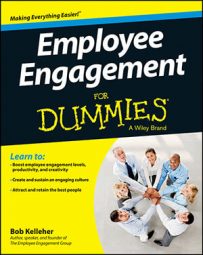Have you ever heard the phrase “No good deed goes unpunished”? It refers to the fact that beneficial actions often go unappreciated (or may even be met with outright hostility). And if the actions are appreciated, they often just lead to additional requests.
Unfortunately, this maxim holds true for rewards, too. For example, many employees begin to see rewards as entitlements — something they expect to receive.
Rewards must be earned.
Another common pitfall with rewards is the “it's my turn” response. This often happens with employee-of-the-month or employee-of-the-year awards. With these, people may assume they should be up for the award simply because they've been around for a while. But again, the reward must be earned.
Perhaps the most egregious pitfall is one that often results from long-term incentives and other “handcuffs” designed to entice people to stay on — even if they're long past their “best by” date. Case in point: a public school teacher who still teaches even when he’s burnt out.
“Well, I can't stand the kids anymore, but I have to hang in there for eight more years so I can collect my pension.” Any program in any organization, public or private, that encourages its least-engaged employees to stay is deeply flawed. Yes, it's good to reward longevity, but not in lieu of performance. Rewarding longevity in and of itself can lead to unintended consequences, such as encouraging your least-engaged employees to stay.

